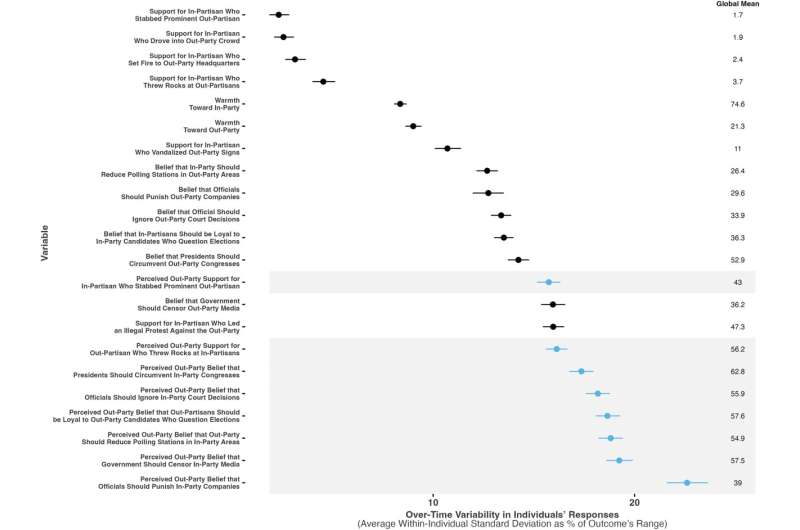This article has been reviewed according to Science X's editorial process and policies. Editors have highlighted the following attributes while ensuring the content's credibility:
fact-checked
peer-reviewed publication
proofread
Correcting misperceptions of opposing party won't reduce polarization, study finds

Political animus between Republicans and Democrats in the United States is alarmingly high, raising fears of undemocratic or even violent actions. An often-touted intervention to prevent political polarization is to identify and correct misperceptions about people's partisan opponents.
Sean Westwood and colleagues sought to empirically test the effectiveness of this strategy. The findings are published in the journal PNAS Nexus.
The authors surveyed 9,810 American partisans online from fall 2022 to fall 2023, finding that their opinions of whether the out-party supports undemocratic practices or partisan violence are inconsistent and changeable, with single respondents often varying 16–23 percentage points between surveys. Hostile attitudes, however, were relatively stable. The authors also conducted a meta-analysis of 12 studies, which show only weak effects of correcting misperceptions.
Finally, the authors conducted three preregistered experiments with online participants. When participants had incorrect beliefs about out-party support for undemocratic practices corrected, the participants changed their perceptions of the out-party but did not change their own level of support for undemocratic practices.
Similarly, participants who were shown false statistics that made the out-party look worse than their own perceptions were happy to change their perceptions—but not their own level of animosity, support for partisan violence, or support for undemocratic practices.
According to the authors, correcting misperceptions about the out-party is not a panacea for the United States' democratic ills.
More information: Nicholas C Dias et al, Correcting misperceptions of partisan opponents is not effective at treating democratic ills, PNAS Nexus (2024). DOI: 10.1093/pnasnexus/pgae304
Journal information: PNAS Nexus
Provided by PNAS Nexus





















